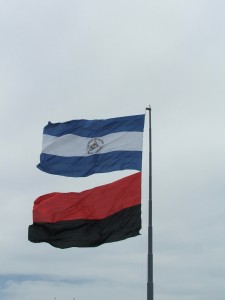I am now nearing the beginning of a new academic year and by now I have had he whole summer to reflect on our groups journey in Nicaragua. One aspect of this in particular has been two questions we asked ourselves on the last evening in the country. What will we take with us and what will we leave behind? As the summer went on after returning home the best answer to that question came to me. I became friends on facebook with some of the students from a university in Leon. One of these students, who will remain anonymous for now, started a conversation with me and to this day it has yet to end. We talk about where we live, what we do for fun, social issues, the news, school and anything else you will find two friends chatting about.
This conversion is perhaps the most precious thing I have taken with me and left behind. It is a two way street for giving the intangible gifts human contact provides. In a broader sense it is one small part of the new and massive transmission of ideas our increasingly interconnected world has. This is also something that should provide people with optimism concerning Nicaragua and other parts of the world with struggling democracies. A free flow of ideas, an open conversation like the one I have with my new friend is something incredibly difficult to stop. The internet has become even in the most censored of places a small cafe for a freethinker to carry with them and to find this gift we take and leave behind; a voice, a conversation and a friend.

